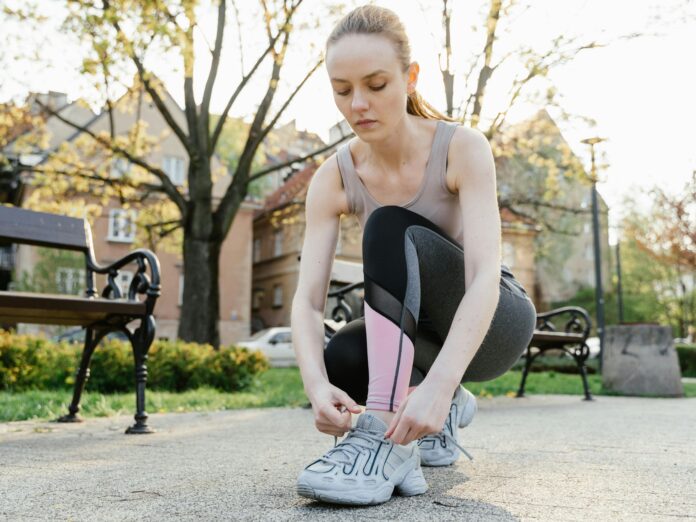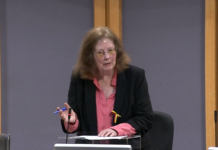
An osteoporosis expert today explains how it is possible to GROW your bones – and shares his advice on how to best do it.
Dr Taher Mahmud, Co-Founder and Director of London Osteoporosis Clinic, said following a few simple steps can dramatically help boost bone strength.
And doing so, he said, may dramatically reduce the chances of a patient developing osteoporosis and associated conditions.
Dr Mahmud said: “Bones are not merely the structural scaffolding of the body; they are dynamic, living tissues capable of growth and regeneration throughout a person’s life.
“The common misconception that bones are static and unchanging once adulthood is reached is outdated and detrimental to public health awareness. My passion lies in dispelling this myth to enhance bone and general health literacy.
“Bone growth occurs in several stages, starting from infancy through to adulthood. This process is continues throughout life and is influenced by various factors including nutrition, physical activity, and hormonal balance.”
Explaining why this is so important he continued: “Adults have the power to positively impact their bone health through lifestyle choices that encourage bone density and reduce the risk of osteoporosis. This is why the message that ‘you can grow your bones’ is so vital – it empowers individuals of all ages to take proactive steps towards maintaining and enhancing bone strength, putting them in the driver’s seat of their health journey.
“Osteoporosis is often a silent condition, going undetected until a fracture occurs. By promoting the concept that bones can grow and strengthen at any age, we can encourage early preventative strategies, rather than solely treatment post-diagnosis.
“Educating the public about bone growth is not just about individual health, it’s a crucial step towards addressing global health challenges. With ageing populations, the incidence of osteoporosis and related fractures is set to rise, presenting significant healthcare challenges across the world. By shifting the narrative to one of prevention and capability, we can help reduce the burden of this disease globally.
Here, Dr Mahmud shares his tips on how to best grow your bones:
Eat the right vitamins
In addition to the well-known calcium and vitamin D, certain foods offer hidden benefits for bone health. Incorporate calcium-rich foods like sardines, canned salmon, collard greens, and tofu into your diet. Vitamin D sources such as fatty fish, egg yolks, and fortified cereals are also crucial.
Exercise Smartly
Regular exercise is vital, but it doesn’t have to be strenuous. Engage in low-impact exercises like Pilates, which are excellent for bone strength. Aim for at least two and a half hours of activity per week.
Get tested
If you’re worried that you could be at risk of developing osteoporosis due to having a history of bone fractures, or if bone fractures are common in your family, there is one way to check.
The DEXA test – meaning dual energy X-ray absorptiometry – is a crucial tool used in hospitals for measuring bone density. It’s a quick and painless scan, usually taking between 10 and 20 minutes, in which a radiographer will take X-ray images of your bones. A large scanning arm will slowly move over your body to measure the bone density in the centre of your skeleton, too.
Avoid very low-calorie diets
Dropping calories too low is never a good idea. In addition to slowing down your metabolism, creating rebound hunger and causing muscle mass loss, it can also be harmful to bone health.
Studies have shown that diets providing fewer than 1,000 calories per day can lead to lower bone density in normal-weight, overweight or obese individuals.
Maintain a stable, healthy weight
In addition to eating a nutritious diet, maintaining a healthy weight can help support bone health. For example, being underweight increases the risk of osteopenia and osteoporosis. This is especially the case in postmenopausal women. In fact, low body weight is the main factor contributing to reduced bone density.
Eat foods high in magnesium and zinc
Calcium isn’t the only mineral that’s important for bone health. Several others also play a role, including magnesium and zinc.
Magnesium plays a key role in converting vitamin D into the active form that promotes calcium absorption. Although magnesium is found in small amounts in most foods, there are only a few excellent food sources. Supplementing with magnesium glycinate, citrate or carbonate may be beneficial.
Zinc is a trace mineral needed in very small amounts. It helps make up the mineral portion of your bones. In addition, zinc promotes the formation of bone-building cells and prevents the excessive breakdown of bone.
Studies have shown that zinc supplements support bone growth in children and the maintenance of bone density in older adults. Good sources of zinc include beef, shrimp, spinach, flaxseeds, oysters and pumpkin seeds.
Help keep news FREE for our readers
Supporting your local community newspaper/online news outlet is crucial now more than ever. If you believe in independent journalism, then consider making a valuable contribution by making a one-time or monthly donation. We operate in rural areas where providing unbiased news can be challenging. Read More About Supporting The West Wales Chronicle




















